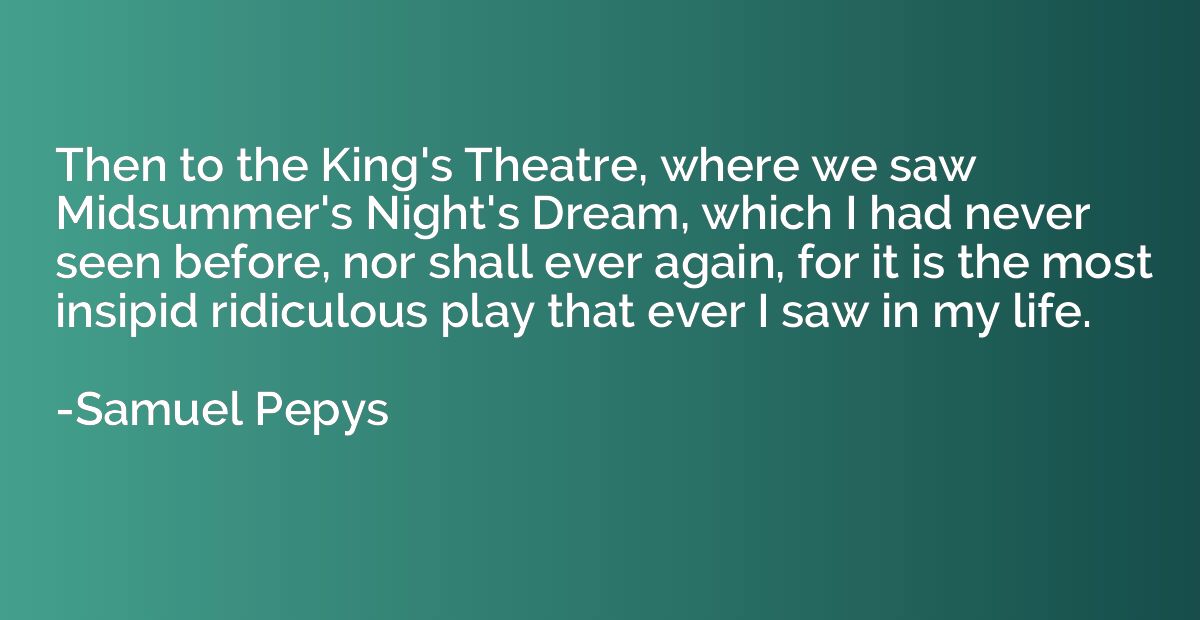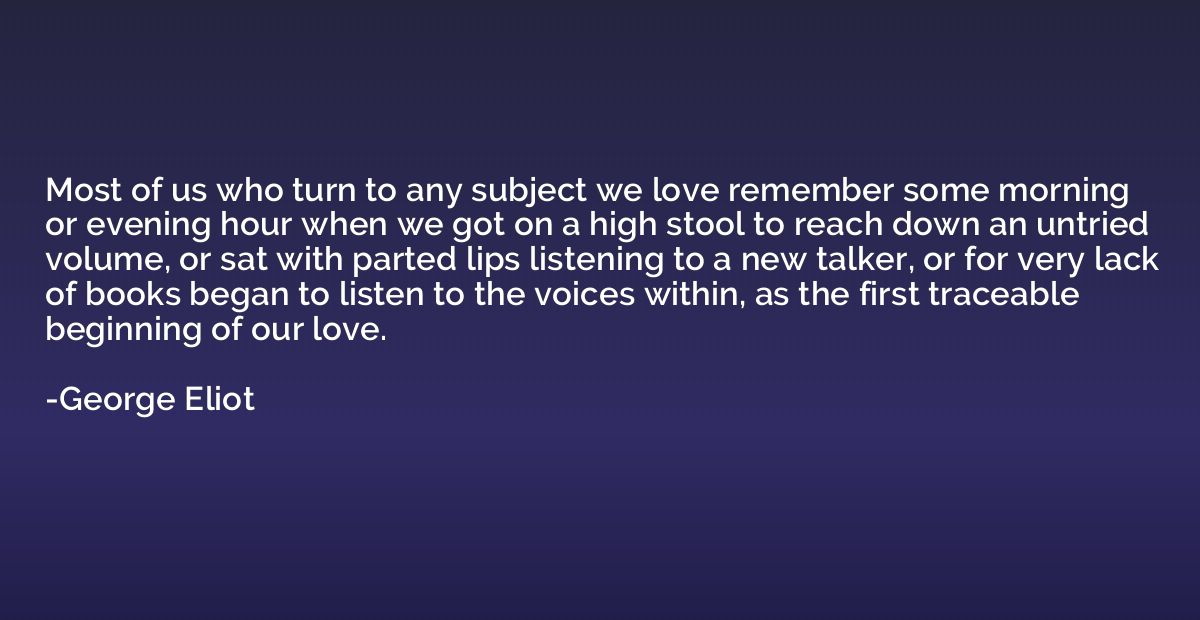Quote by Samuel Pepys
Then to the King's Theatre, where we saw Midsummer's Night's Dream, which I had never seen before, nor shall ever again, for it is the most insipid ridiculous play that ever I saw in my life.

Summary
In this quote, the speaker shares their experience of seeing the play "Midsummer's Night's Dream" at the King's Theatre. In less than 100 words, the quote expresses the speaker's strong dislike for the play, deeming it "insipid" and "ridiculous." The speaker emphasizes their strong conviction that they will never see the play again, implying disappointment in its lack of enjoyment or artistic merit.
By Samuel Pepys














